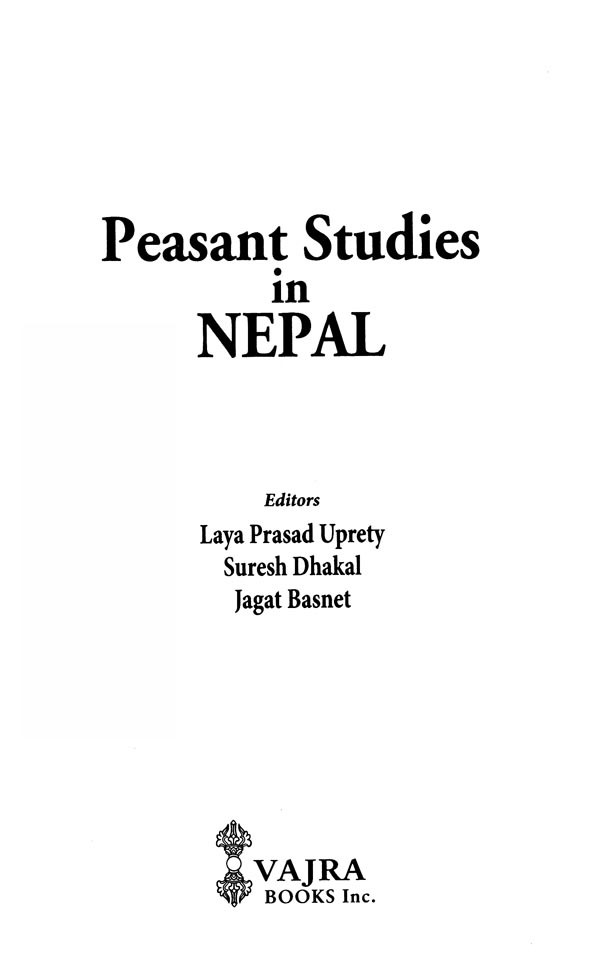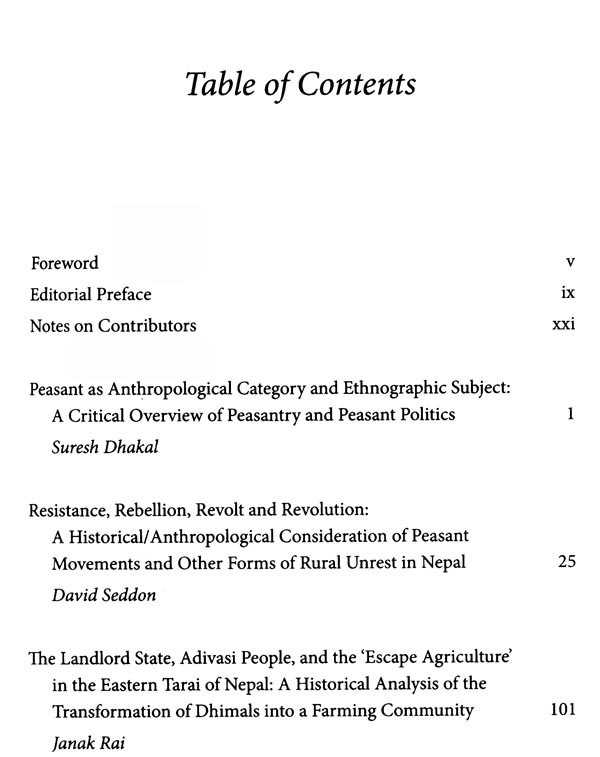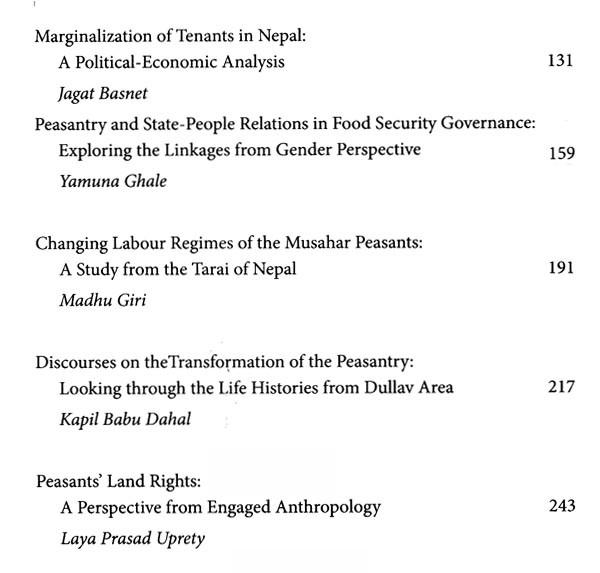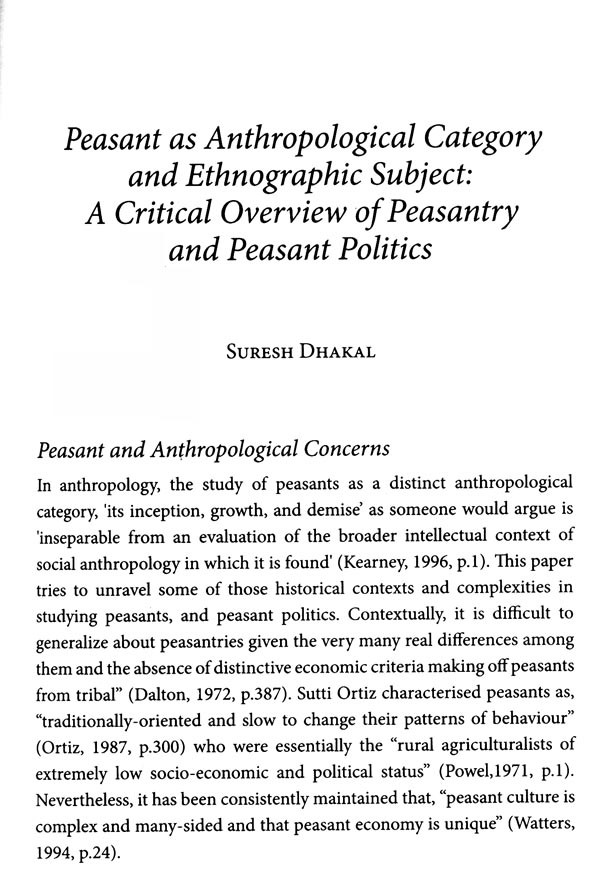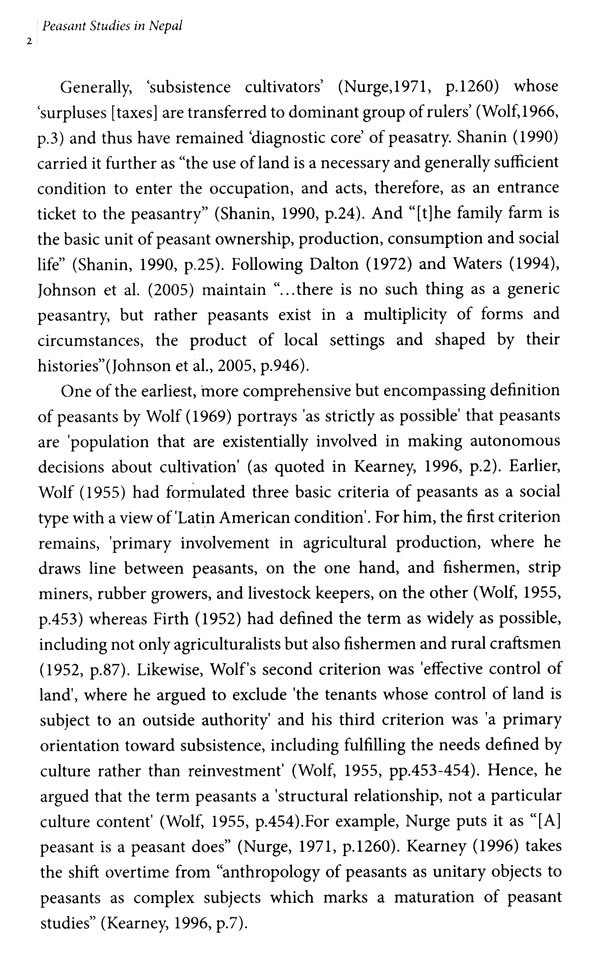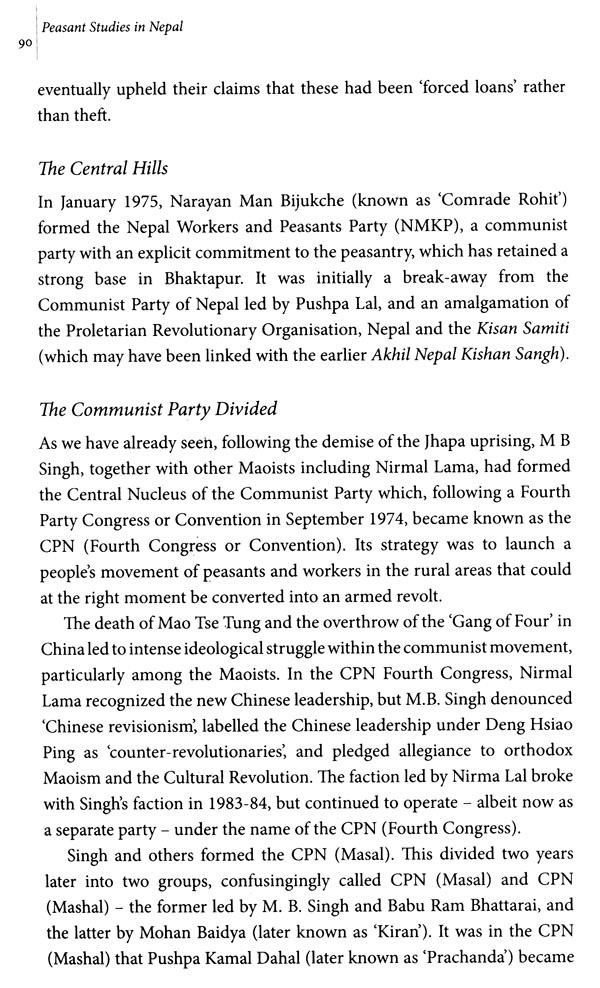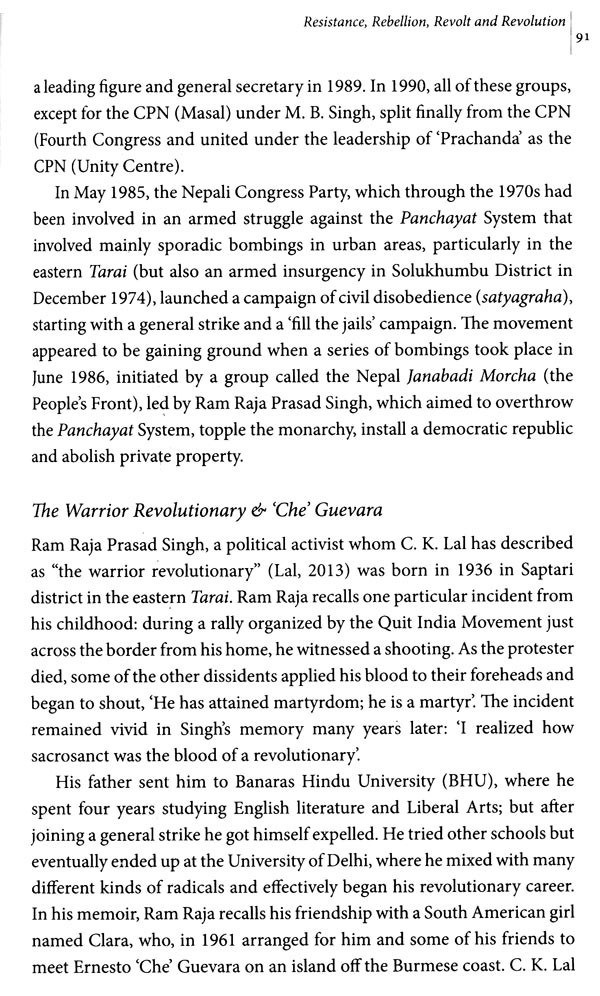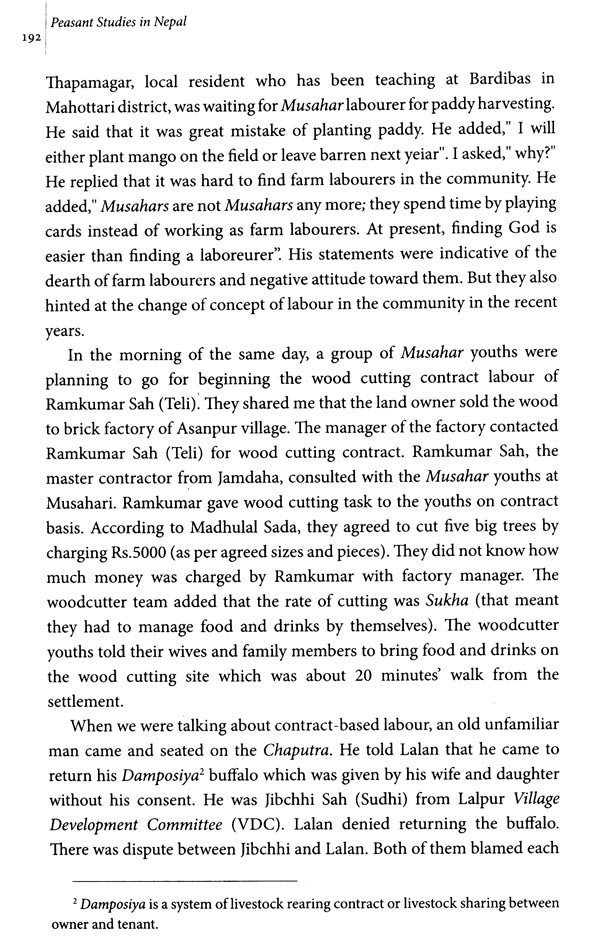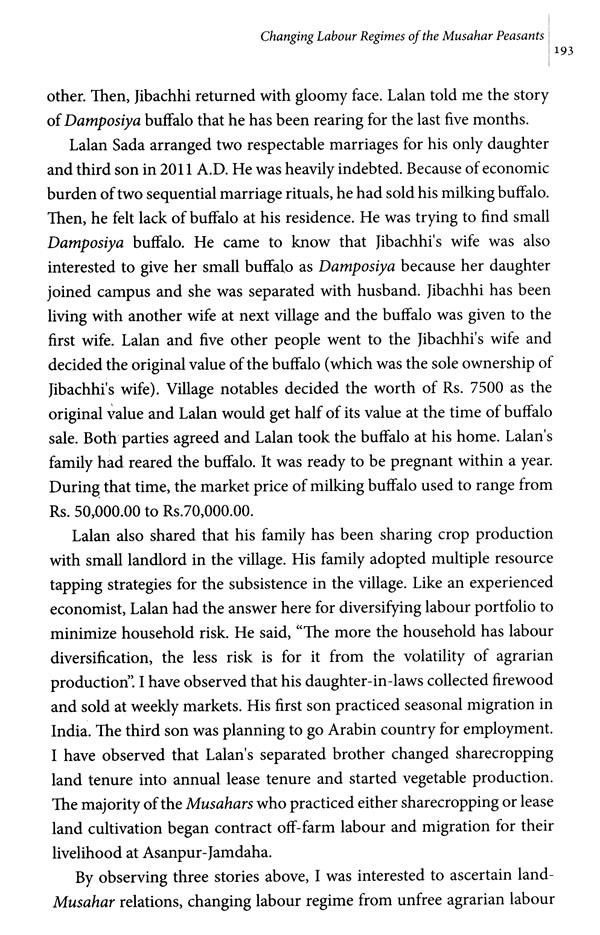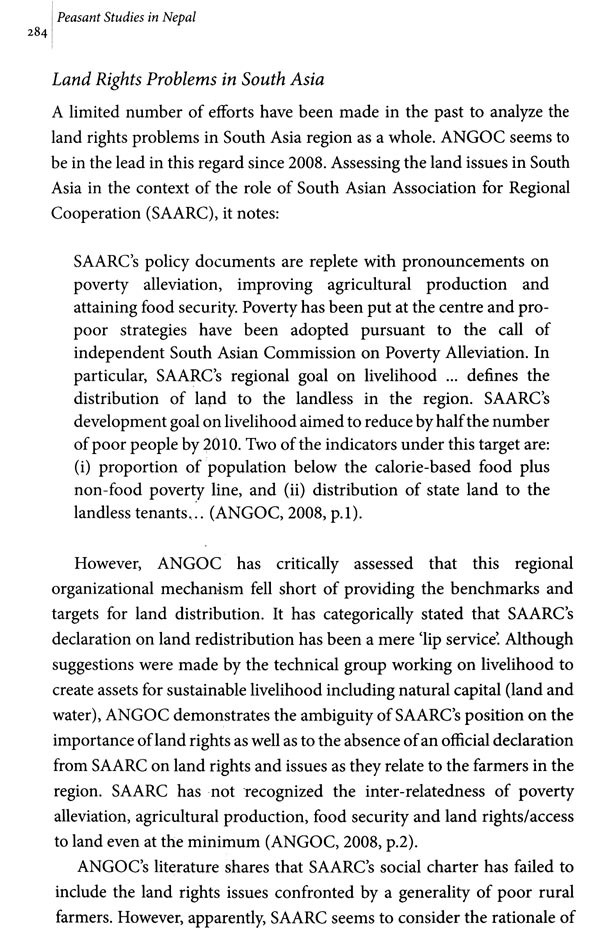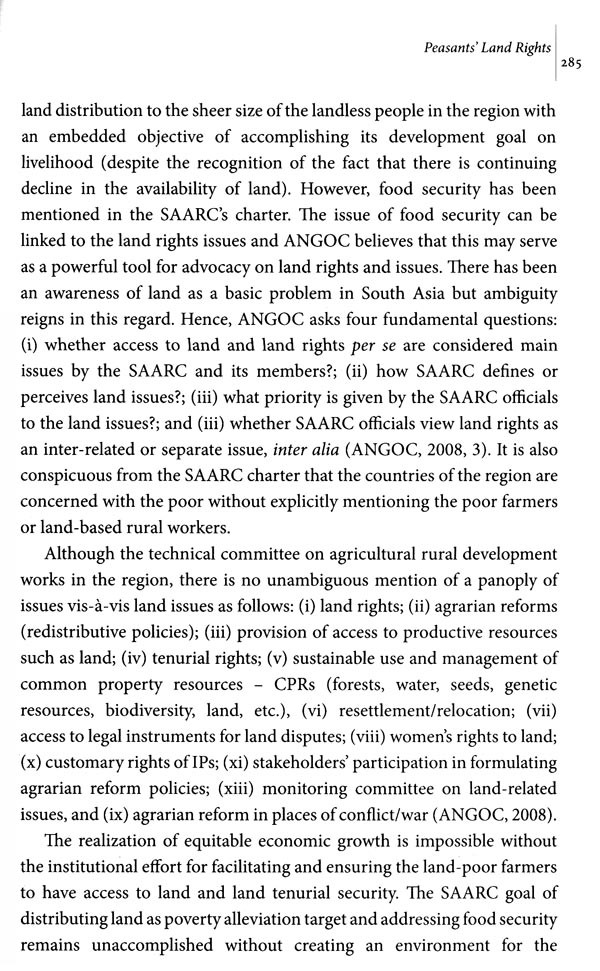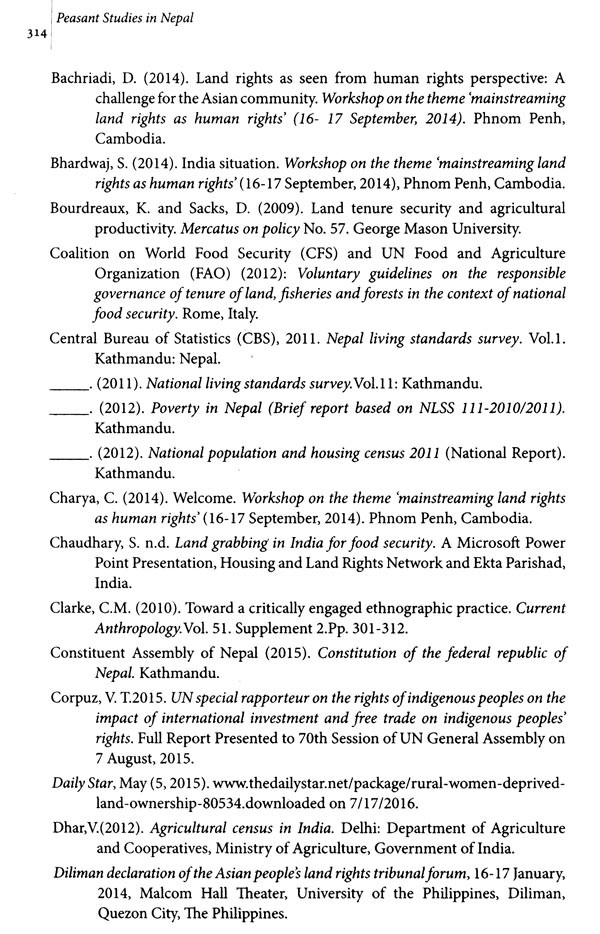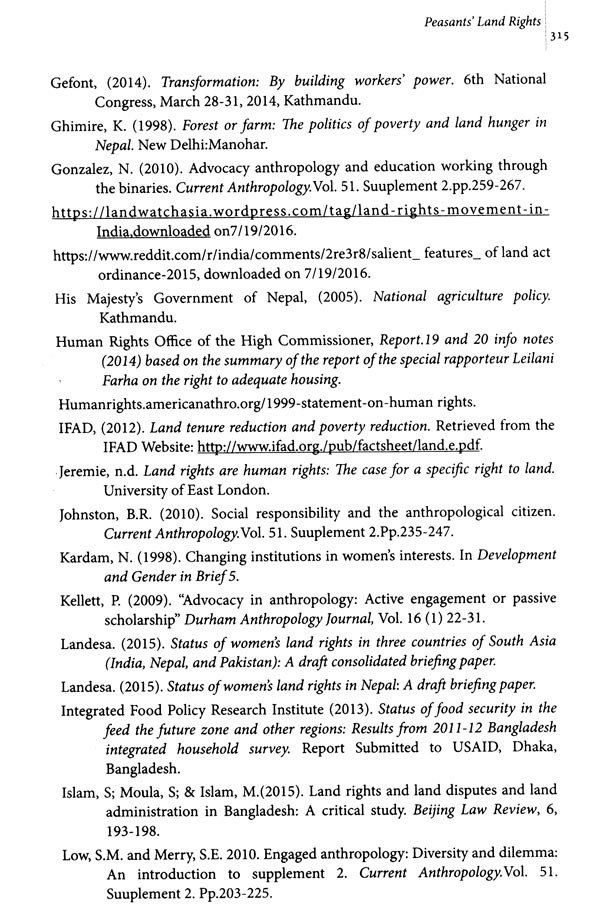About the Book The book is an academic attempt to fill the gap of literature on the T contemporary peasant society of Nepal which is undergoing rapid transformations due to the penetration of global capitalism-a function of the adoption of neoliberal economic development model by Nepal after the democratic resurgence in 1990 AD under the dictates of multilateral development agencies of which Nepal has been a member for long. Equally important is the genesis of an institutional effort between an academic institution and a civil society organization for the "production of knowledge" on 'peasants. 'peasant economy' and 'peasants' rights' in the context of Nepal and South Asia. This book has been the outcome of the contributions of eight scholars working in the disciplines of anthropology, sociology and agricultural sciences. The book contains eight chapters on peasant studies More specifically, Dr. Suresh Dhakal has analytically discussed about the "peasants" as "anthropological categories" and "ethnographic subjects". Dr. David Seddon has presented his historical analysis on the resistance, rebellion, revolt and revolution through the analysis of peasant movements and other forms of rural unrest in Nepal. Dr. Janak Rai has presented the critical analysis on the landlord state, Adivasi people, and the escape agriculture in the eastern Taral of Nepal with the discussion of the transformation of Dhimals into farming community. Mr. Jagat Basnet has furnished a critical discussion on the marginalization of the tenants in Nepal with the lens of political economy Ms. Yamuna Ghale presents an analysis on the peasantry and state-people-relations in food security governance by exploring the linkages from gender perspective. Dr, Madhu Giri has presented an analytical discussion on the changing labour regimes of the Musahar peasants from the Tarai of Nepal Interestingly, Dr. Kapil Babu Dahal has presented the discourses on the transformation of the peasantry through the adoption of life History approach. Dr. Laya Prasad Uprety has presented the analytical discussion on the peasants land rights with a perspective of an engaged anthropologist. Thus, this edited volume stands as a comprehensive reader on peasants and peasantry in contemporary Nepal.
About the Authors Dr. LAYA PRASAD UPRETY is the Professor and Head of the Central Department of Anthropology. Tribhuvan University, Kathmandu, Nepal. He has published numerous articles in the academic journals, co-edited a number of academic journals and books, and authored and co-authored a number of research-based books.
Dr. SURESH DHAKAL is a tenured faculty at the Central Department of Anthropology, Tribhuvan University. He holds M.A in Development Anthropology and Ecology & Subsistence, M.Phil in Human Ecology, and Ph.D in Political Anthropology. He is the recipient of EU MIDEA research grants and Wenner Gren Fellowship (at Cornell University, Ithaca, NY) for his Ph.D in anthropology. In 2016, he served as Research Fellow at the Asia and Africa Area Studies (ASAFAS) at Kyoto University, Japan.He has published numerous articles in the academic journals and authored and co edited research-based books.
Mr. JAGAT BASNET is a social activist, researcher and founder member of Community Self-Reliance Centre (CSRC), a non-violent social movement based organization. Currently, he is the doctoral candidate in Sociology at Rhodes University, South Africa. His innovative work for the landless and tenant families of Nepal has been recognized internationally through a number of prestigious awards. He is the co-editor of the book entitled Land Conflict and Politics in Nepal: Realities and Potential for Agrarian Transformation.
Foreword Studies of the peasant societies and cultures have historically been the foci of socio-cultural anthropology at the global, regional, national, sub national and local levels. Given the fact that there is the panoply of real differences on the 'peasantry' of Nepal across three major geo-ecological belts, developing generalizations on them is an uphill task for social scientists in general and anthropologists in particular. The available literature on 'peasantry' in Nepal fails to describe the diversity within 'peasantry' on the one hand and explicate it in the changing context largely triggered by the neo-liberal model of economic development on the other hand. 'Peasantry' as a distinct term has been in vogue in academia and in everyday communication for several years in Nepal despite its relatively poor definition, description and analysis with empirical substantiations. This is demonstrative of the fact that studies related to 'peasants' and 'peasant economy' have remained relatively less prioritized in the academia (such as in anthropology despite its disciplinary maturity) but concerned government departments and non governmental agencies claim that they work for the betterment of the peasants in the country. Contextually, academicians and development professionals interested to study 'peasants' and 'peasant economy' have to be effortful to look for answers of a battery of research questions.
Preface The book is an academic attempt to fill the gap of literature on the contemporary peasant society of Nepal which is undergoing rapid transformations due to the penetration of global capitalism-a function of the adoption of neoliberal economic development model by Nepal after the democratic resurgence in 1990 A.D under the dictates of multilateral development agencies of which Nepal has been a member for long. Equally important is the genesis of an institutional effort between an academic institution and a civil society organization for the "production of knowledge" on 'peasants, 'peasant economy' and 'peasants' rights' in the context of Nepal and South Asia. This book has been the outcome of the contributions made by five anthropologists, two sociologists and one agricultural scientist. The book contains eight chapters on peasant studies.
Dr. Suresh Dhakal, in his chapter entitled "Peasant as Anthropological Category and Ethnographic Subject: A Critical Overview of Peasantry and Peasant Politics", analytically dwells on peasants whose lives are governed by the agrarian themes and are defined differently in different spatio-temporal contexts. Interestingly, he is in agreement with A.L Krober's notional definition of peasants' societies as "part-societies with part-cultures". He argues that 'peasants' are often understood someone as 'farmers'; but more specifically, 'peasants' have a social position, bound to their land.
**Contents and Sample Pages**
